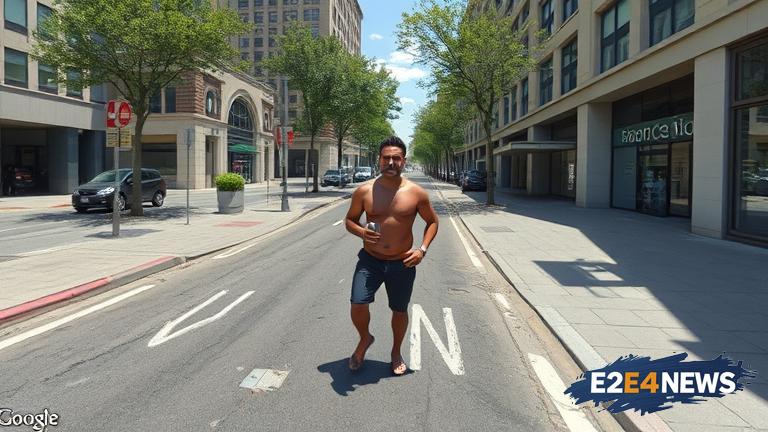In a recent court ruling, a man has been awarded a payout from Google after the company’s Street View cameras captured him naked in his own home. The incident occurred when the man was in a compromising position, unaware that the Google Street View car was passing by and taking photos of the area. The man claimed that the incident had caused him significant distress and embarrassment, and that Google had failed to adequately blur his image before publishing it online. The court agreed with the man’s claim, stating that Google had indeed failed to protect his privacy and had caused him harm as a result. The payout amount has not been disclosed, but it is believed to be substantial. This case highlights the ongoing concerns about privacy and the use of Street View technology. Google has faced numerous lawsuits and complaints over the years related to the service, with many individuals claiming that their privacy has been invaded. The company has implemented various measures to try and address these concerns, including blurring faces and license plates, but it seems that more needs to be done to protect users’ privacy. The man’s lawyer stated that the ruling was a victory for privacy rights and would help to hold companies like Google accountable for their actions. The case has sparked a wider debate about the use of surveillance technology and the need for greater protections for individuals’ privacy. Google has said that it is disappointed with the ruling and is considering appealing the decision. The company has also stated that it takes privacy seriously and is committed to protecting users’ rights. However, this case suggests that more needs to be done to prevent incidents like this from happening in the future. The man’s case has also raised questions about the limits of surveillance and the balance between the need for companies like Google to collect data and the need to protect individuals’ privacy. As technology continues to evolve and become more pervasive, it is likely that we will see more cases like this in the future. The ruling has been welcomed by privacy advocates, who say that it sends a strong message to companies like Google that they must take users’ privacy seriously. The case is also likely to have implications for other companies that use surveillance technology, and may lead to changes in the way that they operate. Ultimately, the case highlights the need for greater transparency and accountability when it comes to the use of surveillance technology, and the importance of protecting individuals’ privacy in the digital age.
